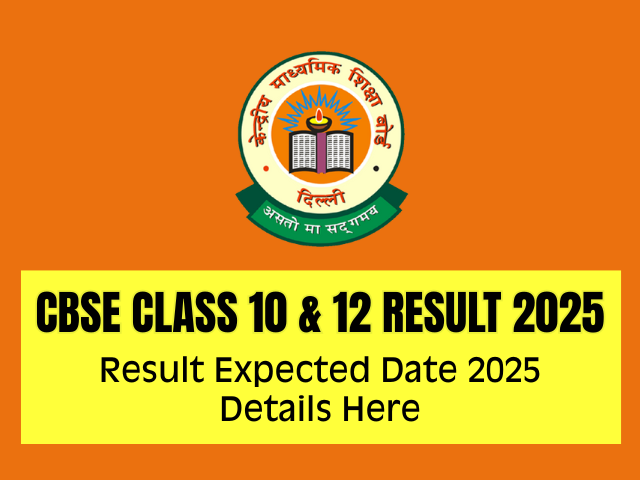The CBSE Class 10 curriculum is designed to provide a comprehensive education that prepares students for both higher studies and future careers. It encompasses a range of core subjects, including Mathematics, Science, Social Science, and languages, each aiming to develop specific skills and knowledge. Mathematics in Class 10 emphasizes the foundations of numerical skills, geometry, and algebra, which are crucial for various advanced studies and real-world applications. The goal is to enable students to solve problems logically and critically, fostering a strong mathematical acumen.
In Science, the curriculum covers fundamental concepts in Physics, Chemistry, and Biology. This integration allows students to understand the practical implications of scientific theories, ensuring they are well-equipped for explorations in higher education. Practical experiments and hands-on learning play a vital role, reflecting the importance of inquiry-based learning in nurturing scientific temper among students.
The Social Science syllabus encompasses History, Geography, Political Science, and Economics, aimed at providing a holistic understanding of the societal structures and environments. This subject area fosters critical thinking, awareness of global issues, and the ability to analyze information from various contexts, thus preparing students to be informed citizens and ethical decision-makers.
Language studies, including Hindi and English, emphasize both literary appreciation and effective communication skills. Proficiency in languages is essential for academic success and personal development, allowing students to articulate thoughts clearly and engage with diverse cultures. Furthermore, practical subjects like Computer Science and Physical Education are integral to the curriculum, as they promote technical skills and physical well-being. Computer Science equips learners with essential digital skills essential for the modern workforce, while Physical Education encourages teamwork, discipline, and a healthy lifestyle. Collectively, the CBSE Class 10 curriculum aims to foster well-rounded individuals ready to tackle the challenges of higher education and their future careers.
Assessment and Examination Pattern
The assessment and examination pattern for CBSE Class 10 is designed to evaluate students comprehensively throughout the academic year. The framework comprises various elements including formative assessments, summative assessments, and the critical board examinations. Formative assessments typically occur during regular classroom activities and include quizzes, class tests, and project work. These assessments focus on monitoring student progress and providing feedback to enhance learning.
As students advance toward the final stage of their academic year, the importance of summative assessments increases significantly. The board examinations, conducted by the Central Board of Secondary Education (CBSE), serve as a decisive evaluation of students’ knowledge and skills acquired over the year. The board examinations are held in the month of February or March, culminating in a significant percentage contributing to the overall academic grade.
Alongside board examinations, internal assessments play a vital role in the grading system. Schools evaluate students based on their performance throughout the year via assignments, participation in class, and project submissions. Each of these components contributes to the overall marks, ensuring a balanced evaluation approach. Understanding the grading system is paramount; typically, the assessment is graded on a scale of A1 to E, with A1 being the highest and E representing a failed attempt.
To prepare effectively for the board examinations, students should adopt a structured study plan, emphasizing key subjects and concepts. Utilizing previous years’ question papers, engaging in group studies, and time management are beneficial shortcuts for enhancing performance. In summary, by familiarizing themselves with the assessment structure and integrating effective study techniques, students can optimize their chances of success in the CBSE Class 10 examinations.
Tips for Effective Study and Revision
Preparing for the CBSE Class 10 examinations can be a daunting task, but with the right strategies, students can enhance their study effectiveness. One of the primary study techniques involves active learning methods, which include summarizing notes, teaching concepts to others, and engaging in group discussions. These methods promote better retention and understanding of the material compared to passive reading.
Equally important is the management of time. Students should create a study timetable that allocates specific time slots for each subject. This helps in balancing the workload and ensuring that ample time is devoted to each subject. It is advisable to break down the syllabus into manageable sections, allowing students to focus on one portion at a time. For instance, dedicating a week to mathematics, followed by a week for science, can aid in systematic learning.
Creating a revision schedule is critical as the examination date approaches. A well-structured revision plan should incorporate incremental reviews of content to reinforce knowledge. Students can utilize techniques such as spaced repetition, where concepts are revisited at intervals, to improve long-term retention. It is also beneficial to incorporate various resources, such as textbooks, online platforms, and past exam papers. Past papers are particularly useful as they familiarize students with the exam format and types of questions that may be asked.
Utilizing online materials, including video tutorials and interactive quizzes, can also diversify the study experience, making learning more engaging. In conclusion, an organized approach to study and revision, combined with effective time management and diverse resources, will significantly contribute to a student’s performance in the CBSE Class 10 exams.
Post-Class 10 Opportunities and Career Guidance
Completing Class 10 represents a significant milestone in a student’s academic journey, and the opportunities available thereafter can shape their future educational and career paths. At this juncture, students are required to carefully choose between various streams: Science, Commerce, and Arts, each leading to distinct professional avenues. The choice made during this phase not only influences the immediate educational experience but also has long-term implications for career trajectories.
The Science stream often appeals to students with an interest in Mathematics and the natural sciences. It opens doors to fields such as engineering, medicine, and technology. Conversely, students who gravitate towards numbers and business concepts may find the Commerce stream more suitable. This path paves the way for careers in finance, accounting, and business management. Finally, the Arts stream caters to those with a passion for literature, history, and creativity, leading to opportunities in fields like humanities, design, and media.
In addition to the traditional academic streams, vocational courses are gaining popularity among students seeking practical skills and immediacy in their career paths. These programs offer specialized training in various industries, directly catering to market demands and significantly enhancing employability right after education.
It is paramount for students to make informed decisions regarding their post-Class 10 options. Conducting thorough research about each stream or vocational path, understanding their interests and aptitudes, and considering future job prospects are crucial steps. Engaging with guidance counselors and experienced teachers can further illuminate potential pathways, thus helping students align their choices with career aspirations. Their support can provide valuable insights into the strengths and weaknesses of each option, promoting thoughtful decision-making as students embark on this critical phase of their educational journey. Such preparations can ensure a smoother transition into higher secondary education or vocational training, ultimately setting the foundation for a successful career.





